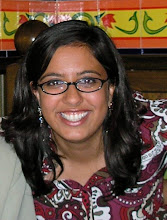Wednesday, July 28, 2010
#storylab
Monday, April 26, 2010
State Department Panel: "Human Rights Advocacy 101"
Idealists, consider yourselves warned. Addressing human rights issues may be the right thing to do, but that logic alone won’t convince any government to act.
Leaders of three prominent human rights organizations and a State Department official gathered with about two dozen students at town hall meeting Monday where they emphasized the importance of framing human rights as a central component of national and economic security, rather than a stand-alone issue.
National debates over detainee abuse and civilian trials of suspected terrorists that have intensified over the past two years show the world we’re prepared to consider what our laws really mean, said Michael Posner, assistant secretary for democracy, human rights and labor.
It matters who gives voice to such issues. For example, when Gen. Stanley McChrystal takes steps to reduce civilian casualties, and retired military leaders speak out against torture, the link between human rights and national security becomes clearer.
However, “you don’t push hard enough that you disempower those in government,” said Jennifer Windsor, executive director of Freedom House. Rather, you continue to show stakeholders, including those in the private sector, that advancing human rights does not contradict motivations.
The panel discussed the Global Network Initiative, a coalition of private information and communication technology companies (including Google, Microsoft and Yahoo!), nongovernmental organizations and academic institutions dedicated to protecting the freedom of expression. Something like the GNI elucidates to for-profit organizations their role as “a linchpin to this idea of American foreign policy,” Massimino said.




